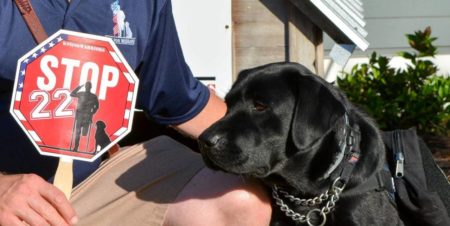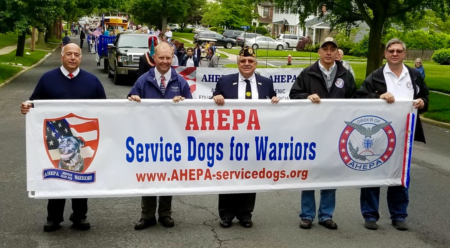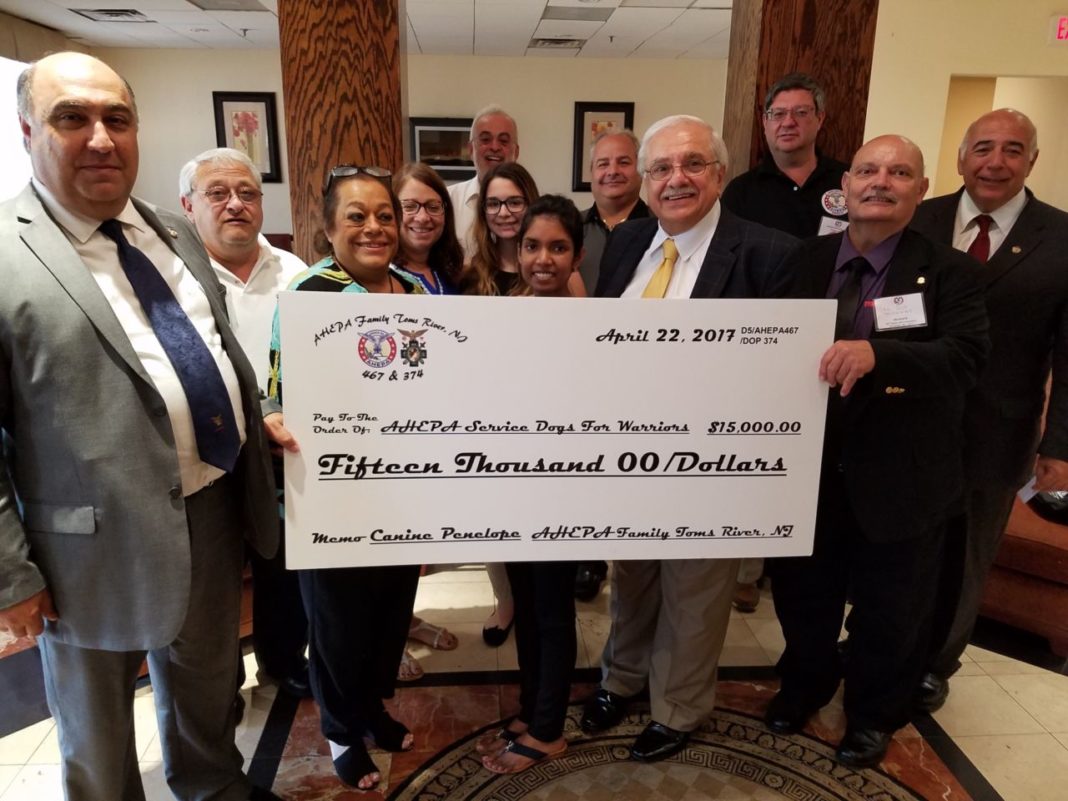By David Bjorkgren, Special to the Hellenic News of America
Dogs are good companions to those with Post Traumatic Stress Disorder because they provide unconditional love and respond well to authority.
“Many military personnel return from their deployments and have difficulty functioning in their relationships. They are used to giving and getting orders,” says George Karatzia, national chairman of AHEPA Service Dogs for Warriors, Inc. That doesn’t work well in a typical American home.
“Dogs love it. Dogs are protective. Just like the buddy system in the military. Someone is there to have your back,” he says.
Because dogs love you more than they love themselves, they can help returning vets relearn trust and love, a big issue with PTSD. “It can be very difficult to feel safe in the world after certain experiences, and being able to trust the immediate environment can take some time,” Karatzia says.
Dogs are intuitive, more sensitive to the emotions and stress experienced by the vets. “They will wake you out of your nightmare,” he says. If you’re in a crowded room and you suddenly feel uneasy, the dog will come between you and everybody else by lying on your feet. “To everyone else it just looks like the dog is just lying there in front of you. In essence what is the dog really doing? It’s telling you, ‘you’re OK, I’m here for you.’”
The service dogs also force vets to focus outside themselves. The dog needs to be cared for. You have to take it outside, where you’re going to see the sun, experience fresh air, maybe have a conversation.
Service Dogs for Warriors Vice Chairman Robert Fourniadis recalls a woman vet with a service dog who was nervous giving remarks at a conference. “The dog was sitting next to her looking out, but when she started getting nervous, he turned, sat in front of her and looked up at her as if to say, ‘don’t worry, I’m here.’ She immediately calmed down, finished her speech and it was just amazing to see it in action,” he says.
In the past, specially-bred, trained service dogs could be bought for anywhere from $30,000 to $50,000 each. Then an outfit called K9s for Warriors, started by an Iraq veteran and his parents, discovered they could use rescue dogs under two years old, train them and pair them with the vets, reducing the cost to $15,000 per dog.
Training the dogs to work with the vets does not happen overnight. Trainers must teach the dogs commands that reflect the issues of PTSD. Dogs must respond to the problems of anxiety and panic attacks. Once trained, the dog is paired for three weeks, 24/7, with the vet for compatibility. At the end of three weeks, they are evaluated.
“Sometimes a dog might just want to be a pet. Sometimes a dog might be a little too aggressive,” Karatzia says. The vet, too, must know how to treat the dog like a service dog, not like a pet. If the vet and dog are paired off, the dogs are revisited a year later by the trainers to see if they still know their commands.
. As Karatzia and Fourniadis continue fundraising to sponsor more dogs, they see the service dogs as an alternative to the VA’s current practice of using drugs to treat PTSD symptoms. They hope to persuade a Congressman or Senator to start a pilot program through the VA to show the benefits of matching PTSD victims with the dogs. So far, efforts to talk with VA representatives about teaming have failed, they say.
“The VA could really, really help,” Karatzia says.
To Karatzia, the service dog project is something spiritual, a mission to save a life. “This is what I really feel the strongest, what drives this whole program, the electricity behind it and I really feel strongly it’s with the grace of God.”










